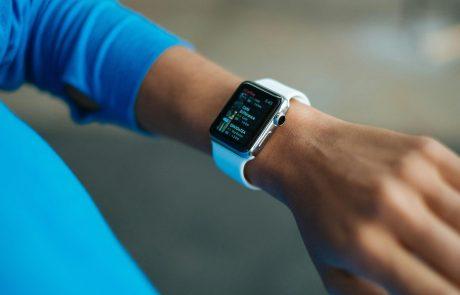Wearable Tech Redefines Care
Transforming Monitoring, Improving Outcomes, Driving Innovation
Every day, 2.5 quintillion bytes of data are generated worldwide, and a growing portion of this comes from wearable health devices. From tracking steps to monitoring heart rhythms, wearables have evolved far beyond fitness trends—they’re now vital tools in modern healthcare. Today, they can alert clinicians to signs of heart failure, track recovery progress post-surgery, and even predict potential health crises before they happen.
This is the transformative power of wearable technology. By turning real-time health data into actionable insights, these devices are reshaping patient monitoring and setting a new standard for proactive, personalized care.


Real-World Applications of Wearable Technology in Healthcare
Wearable devices such as smartwatches, biosensors, and patches have become vital tools in monitoring various health metrics. These technologies enable real-time tracking of vital signs, including heart rate, blood pressure, oxygen saturation, and even glucose levels. For instance, continuous glucose monitors (CGMs) have revolutionized diabetes management by allowing patients to track their glucose levels throughout the day, significantly improving glycemic control (Adeghe et al., 2024).
Moreover, wearable electrocardiogram (ECG) monitors are assisting clinicians in diagnosing and managing arrhythmias, such as atrial fibrillation, before they progress into more severe conditions. These devices not only empower patients by providing valuable insights into their health but also reduce the burden on healthcare systems by preventing hospitalizations and enabling early interventions.
Wearable technology is also being applied in post-operative care and rehabilitation. For example, wearable motion sensors help monitor recovery progress in orthopedic patients, providing precise data on movement and compliance with prescribed physical therapy regimens (Springer, 2024).
The Benefits of Wearable Tech in Patient Monitoring
- Enhanced Patient Outcomes: Wearables facilitate continuous and non-invasive monitoring, enabling early detection of potential health issues. This proactive approach has been shown to improve survival rates and patient satisfaction significantly.
- Increased Efficiency: By automating data collection and analysis, wearable devices free up healthcare professionals to focus on higher-value tasks. This efficiency is particularly impactful in resource-constrained settings, where staff shortages are common.
- Data-Driven Decision Making: The integration of wearable data with electronic health records (EHRs) provides a comprehensive view of a patient’s health, supporting more accurate diagnoses and personalized treatment plans.
Challenges to Adoption
Despite their potential, wearable technologies face several challenges:
- Data Security and Privacy: Ensuring the protection of sensitive health data remains a critical concern. Robust cybersecurity measures are necessary to safeguard patient information.
- Interoperability: Many wearable devices lack seamless integration with existing healthcare systems, leading to data silos and inefficiencies.
- Cost and Accessibility: High costs associated with wearable technology can hinder widespread adoption, particularly in underserved communities.
- User Compliance: Adherence to wearing and using these devices correctly can vary among patients, impacting the reliability of the data collected (Springer, 2024).
Future Opportunities and Trends
The future of wearable technology in healthcare looks promising. Advancements in artificial intelligence (AI) are enabling predictive analytics, transforming raw data into actionable insights. For instance, AI-powered wearables can predict cardiac events or detect early signs of infection, allowing clinicians to intervene before conditions worsen.
Furthermore, the miniaturization of sensors and improvements in battery technology are paving the way for more discreet and comfortable devices. Researchers are also exploring innovative applications such as ingestible sensors and biocompatible wearables, which could provide even deeper insights into patient health.
How Consulting Services Can Help
Implementing wearable technology requires a strategic approach to ensure alignment with an organization’s goals. Consulting services can:
- Assess Organizational Readiness: Evaluate existing infrastructure, workflows, and staff training needs.
- Develop a Tailored Strategy: Identify the most suitable wearable solutions based on clinical objectives and patient demographics.
- Ensure Compliance: Navigate regulatory requirements and implement robust data security measures.
- Optimize Integration: Facilitate seamless integration with EHRs and other healthcare IT systems.
- Monitor and Evaluate: Establish metrics to assess the impact of wearable technology on patient outcomes and operational efficiency.
Wearable technology is redefining patient monitoring by providing real-time insights, enhancing care delivery, and driving innovation. While challenges remain, the benefits far outweigh the barriers, making wearables a critical component of modern healthcare.
By leveraging consulting services, healthcare organizations can navigate the complexities of implementation, ensuring these technologies are optimized to meet their strategic objectives and improve patient outcomes.
References
- Adeghe E. A review of wearable technology in healthcare: Monitoring patient health and enhancing outcomes. ResearchGate. 2024. Available from: https://www.researchgate.net/profile/Ehizogie-Adeghe-2/publication/380068620_A_review_of_wearable_technology_in_healthcare_Monitoring_patient_health_and_enhancing_outcomes/links/66294d5906ea3d0b740103d7/A-review-of-wearable-technology-in-healthcare-Monitoring-patient-health-and-enhancing-outcomes.pdf
- Springer. Advances in artificial intelligence for wearable technology in healthcare. SpringerLink. 2024. Available from: https://link.springer.com/article/10.1007/s00521-024-10197-z
- Springer. Challenges in implementing wearable healthcare technologies. SpringerLink. 2024. Available from: https://link.springer.com/article/10.1007/s11042-024-18177-0
